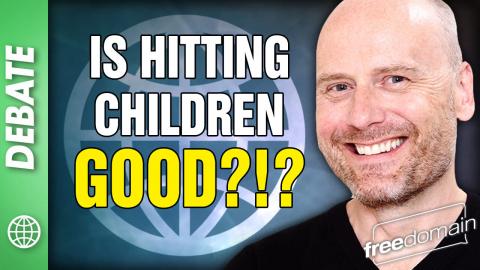How I feel when I debate Christians
2
0
48 Views
Published on 21 Mar 2022 / In
Film & Animation
ecstasy · rapturous delight. · an overpowering emotion or exaltation; a state of sudden, intense feeling.
Show more
0



 KnowMoreNews
KnowMoreNews
 LiberumArbitrium
LiberumArbitrium
 Sant77
Sant77
 MikePompeoFanboy
MikePompeoFanboy
 Styxhexenhammer666
Styxhexenhammer666

 Timcast IRL
Timcast IRL

 The Muslim Skeptic
The Muslim Skeptic
 Coach_Corey_Wayne
Coach_Corey_Wayne

 The Alex Jones Show
The Alex Jones Show


 Angry Guy
Angry Guy



 Stefan Molyneux
Stefan Molyneux



Log in to comment
I am just orgasmic right now with pleasure,I am so proud of myself!
I just continue to rip these Christcucks so many new assholes here! They are literally just covered in new assholes and they just use them to spew out more of their retarded diarrhea lies from every one of them!
These people are the absolute fucking worst,just scroll down and you'll see some of them displaying how insane and awful and evil they are. Go on,the horse is telling you straight from his own mouth right here in the comment section.
You say you don't like Christians. I don't like them either! But I'm a believer, so I'm trying to find a description of what to call myself instead of Christian. I haven't found or decided on one yet.
I take it that's the perceived self perception from the point of view of the Christian being debated. I know the feeling, But like Putin said why stop there, its all religious fucks not just Christians. Really it's pointless debating them due to religion induced brain damage, the only hope is to catch them at the right time of the religious "menstruation" cycle similar to but not as frequent as the saying every woman is a hoe if you catch her on the right time of the month.
A study published in the journal Neuropsychologia shows that religious fundamentalism is at least partially the result of brain damage in the prefrontal cortex. Damage in this area of the brain leads to decreased cognitive flexibility and makes people more rigid, scientists at Northwestern Private University in the United States have shown.
Traits like curiosity, creativity, and open-mindedness are affected in people who suffer from lesions in this part of the brain. “Religious beliefs can be thought of as socially transmitted mental representations that consist of supernatural events and supposedly real entities. Religious beliefs differ from empirical beliefs, which are based on how the world appears to be and are updated as new evidence accumulates or as new theories with better predictive power emerge. On the other hand, religious beliefs are generally not updated in response to new scientific evidence or explanations, and are therefore strongly associated with conservatism, ”a report of these findings said on the“ Raw Story ”website. .
Explaining the assault associated with fundamentalism, journalist Bobby Azarian, PhD in neuroscience, writes: “Fundamentalist groups generally oppose anything that questions or calls into question their beliefs or way of life. Because of this, they are often aggressive towards anyone who does not share their specific set of supernatural beliefs, and towards science, as these things are seen as existential threats to their entire worldview.
The Neuropsychologia article was written based on research conducted by Jordan Grafman of Northwestern University. He used data from Vietnam War veterans, a number of whom had brain damage suspected of playing a critical role in functions related to religious fundamentalism. “The CT scans were analyzed by comparing 119 vets with traumatic brain injuries to 30 healthy vets without damage, and a survey assessing religious fundamentalism was administered. While the majority of the participants were Christians of some sort, 32.5% did not specify a particular religion, ”Raw Story said.
“Cognitive flexibility” refers to the ability to move from one concept to another and think about several things simultaneously. It is a crucial skill to adapt to new environments. Brain imaging research has shown that a major neuronal region associated with cognitive flexibility is the prefrontal cortex. The researchers examined patients with lesions in this area and looked for correlations between damage in these areas and responses to religious fundamentalism, by administering a questionnaire.
The results were as expected, and the damage was shown to correspond to religious fundamentalism. Openness was measured using a widely used personality survey known as the NEO Personality Inventory.
Research suggests that extreme religious indoctrination interferes with the development or proper functioning of the prefrontal regions. However, the authors say that in addition to brain damage, genetic predispositions and social influences also need to be investigated.